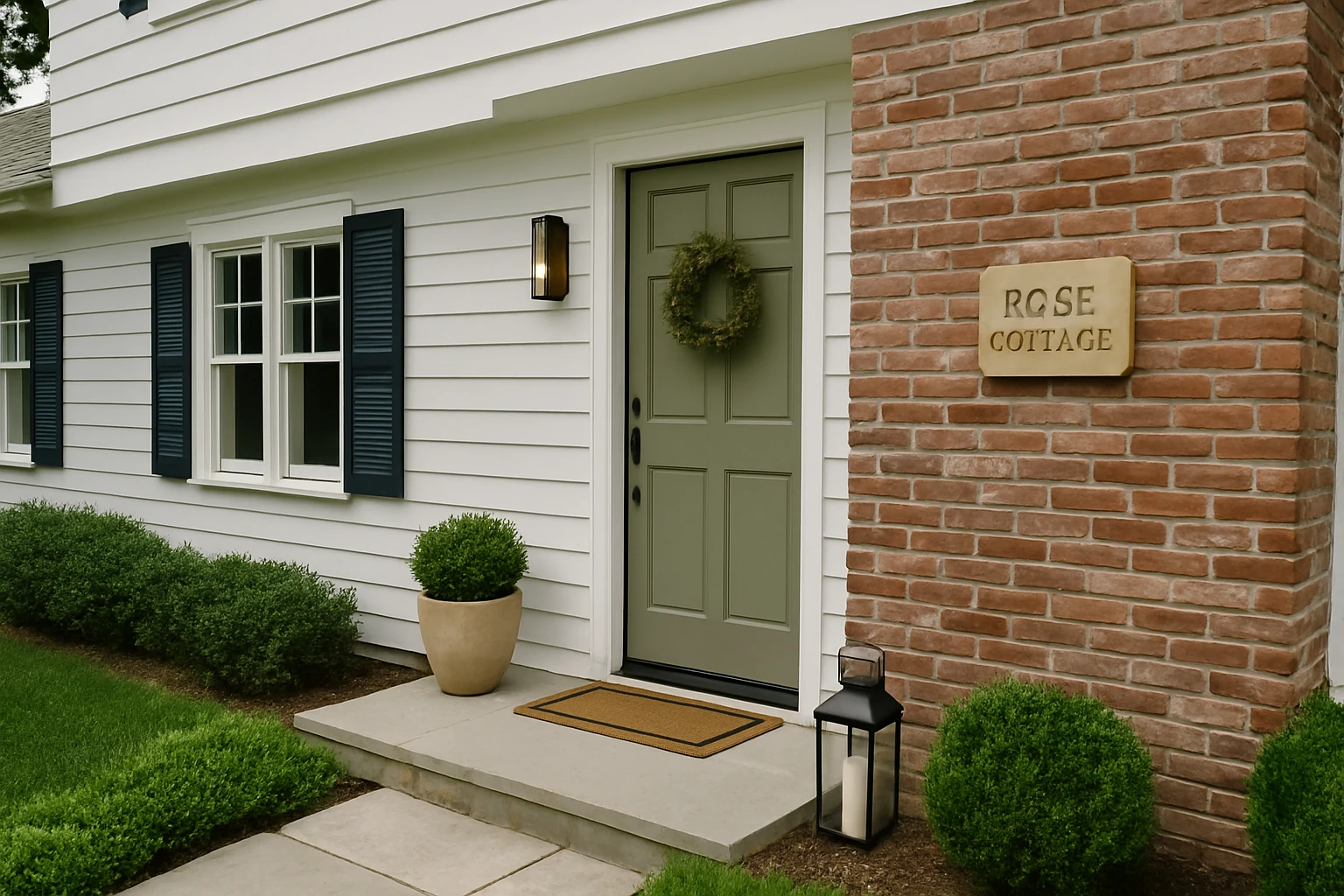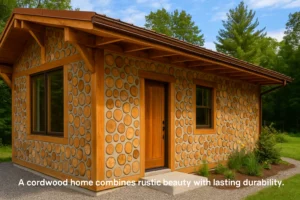A house is more than just a building. It holds laughter, silence, love, and life. Every wall and corner holds stories that shape who we are. That is why naming a house matters. A good name gives voice to a space. It adds warmth, identity, and charm.
Some people want a name that feels elegant. Others choose something fun or light. Many homes carry names tied to memories, family history, or nearby nature. A strong name also helps guests remember a place. It can even help rental listings stand out.
In the past, only castles and grand estates had names. Today, any home can carry one. You do not need wealth or fame. You only need heart, creativity, and a connection to your space.
This guide walks through why names matter, what makes a good one, and how to create the perfect name for your home. You will see real ideas, emotional meaning, and simple steps to follow.
Every home has a story. A name is how that story begins.
The Tradition and Symbolism Behind House Names
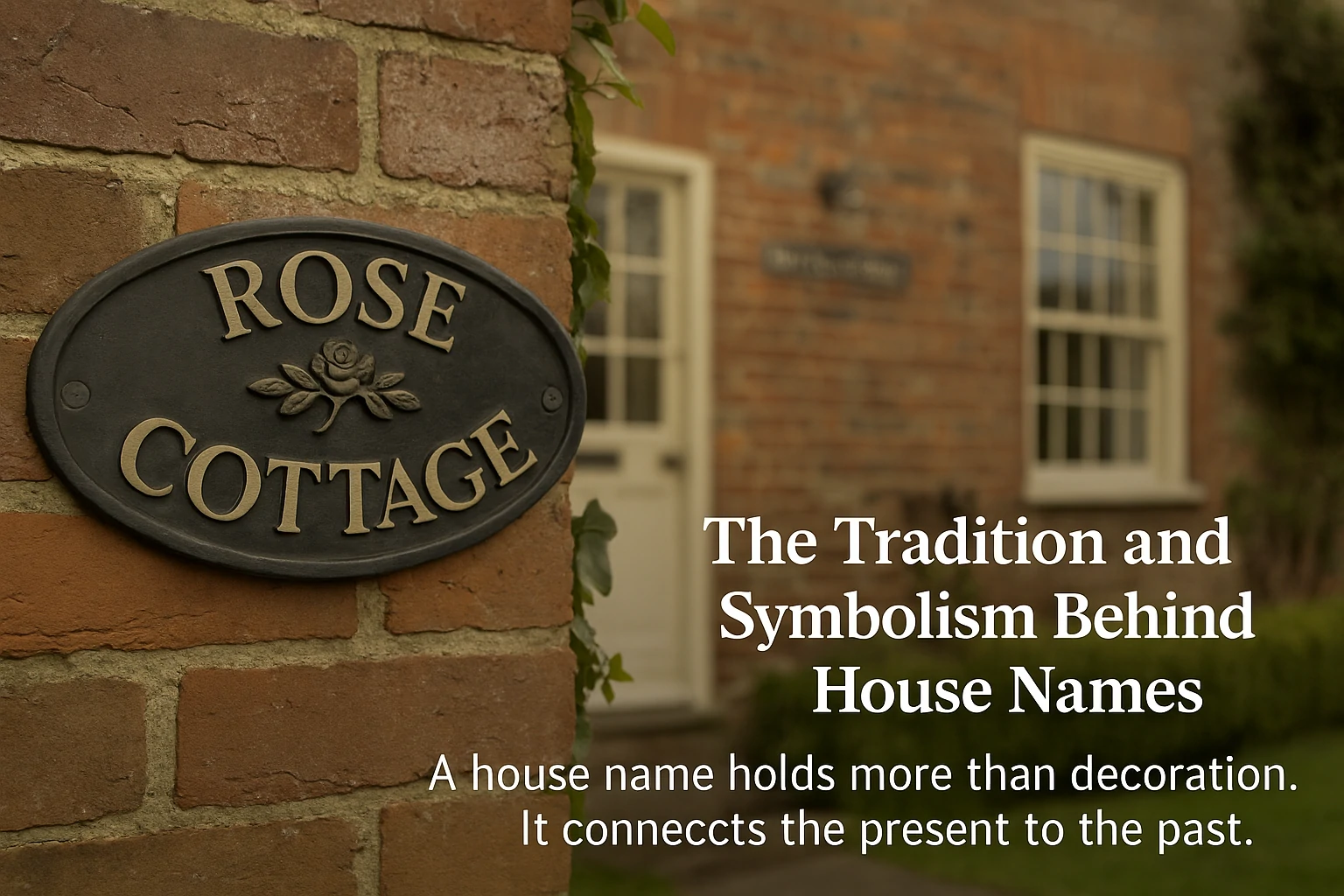
A house name holds more than decoration. It connects the present to the past. People once named homes to mark pride and family identity. The name helped others find the property and remember it.
In many cultures, home names also symbolized protection and blessings. A name was thought to bring good fortune. It helped define how people saw the space. That feeling remains today.
When you name your home, you add history to your daily life. The name becomes part of the place’s story. Every person who visits learns a small piece of your world through that single word or phrase.
Emotional Reasons Behind House Naming
Naming a house is not only about looks. It speaks to emotion. Some people name homes to feel grounded. Others want to mark a new beginning. A family may name their house after the birth of a child or a milestone in life.
It also reflects values. A calm name like “Stillwater” or “Peace Ridge” shows love for quiet and harmony. A bold name such as “Iron Gate” or “Red Oak” shows strength. Every name has a feeling that mirrors the people who live there.
A name connects your home to your identity. It turns space into meaning. That emotional link is what makes the name unforgettable.
Why People Name Their Homes

Home naming has a long past. Old estates used names to mark land and family ties. A name gave status and helped others find the place. Over time, the reasons changed, but the idea stayed alive.
Today, people name homes to honor loved ones. A name like “Grandpa’s Porch” brings memories back. Some choose names based on trees, hills, or rivers nearby. “Maple Bend” or “Riverstone” reflect beauty and calm.
A name also makes a space feel complete. It adds emotion to design it becomes more than a house. It turns into a symbol of pride and belonging. Guests feel the welcome. Children grow with the story. Even strangers remember it.
In rentals, a name builds trust. “The Blue Nest” or “Sunny Steps” stands out more than a plain address. It gives guests something to connect with. A good name increases bookings because it adds meaning.
If your home follows a clean, open layout like a patio home, choose a name that reflects ease and modern charm. Get inspired with real-life design from Patio Home Living: Easy Comfort, Modern Style.
What Makes a Good House Name
A good name sounds natural and easy. It fits the style of the home. Short names feel warm and clear. Long names lose power. Two to three words work best. “Willow House” feels stronger than “The Great Residence of the Oaks.”
The name should match the mood. A beach home may use soft words. A forest cabin may sound earthy. “Stone Path” fits a bold home. “The Nest” fits a small, cozy space. Use words that show the home’s soul.
Connection matters more than clever tricks. The right name comes from your story. Think about your time spent in the house. Think of the people who live there. Say names aloud. Write them down. Imagine them on the gate. If it feels honest, it works.
Avoid names that copy others or feel trendy. A good name comes from your own life. Keep it personal. Keep it true.
What House Names Can Mean

A name is more than a label. It shows love, peace, or joy. Some names reflect growth. Others show hope or calm. A name like “Hearthlight” speaks to warmth. “Sunset Hill” may show new starts. These names speak without full stories.
Naming a house can also say thank you. Many people use names to show faith or honor nature. “Grace Home” may reflect belief. “Willow Walk” can show love for trees and the outdoors.
A house name is not just for signs. It becomes part of your life. Friends remember it. Kids grow up saying it. It stays in stories and photos. It helps tell who you are.
When a name means something real, it never grows old.
Practical Tips Before You Finalize a House Name
Check for Uniqueness
Search online and within your area. Make sure no other nearby home uses the same name. This helps prevent confusion with mail, maps, or property signs.
Keep It Simple and Universal
A simple name works better than a complex one. Choose words that anyone can pronounce and spell. It makes your home easy to talk about and remember.
Visualize Before You Commit
Picture the name on a doorplate or gate sign. Imagine it engraved on a wall or printed on a welcome mat. If it fits naturally in all those places, it is the right choice.
Respect Culture and Language
If you choose a word from another language, check its meaning. Make sure it aligns with what you want to express. A wrong translation can change the feeling you aim to share.
How to Name Your House
Start with what you see. Look at your home from every angle. Think about the colors, shapes, and space around it. Listen to the sounds. Think of memories. Write down the words that come to mind.
Match words together. Try pairs like “Cloud Ridge,” “Echo Farm,” or “Golden View.” Use names that paint a picture. Let each one feel like it could live on a sign or door.
Speak the names out loud. A good name should sound soft and flow. If it feels awkward, change it. Say it more than once. You will know when it fits.
Ask others. Let family or close friends give ideas. A child may see something new. A partner may help shape the tone. The name should reflect the people who live there.
Take your time. Let the name grow. Write it down. Sleep on it. The right one feels calm. It fits your home like it has always been there.
Where to Put the Name
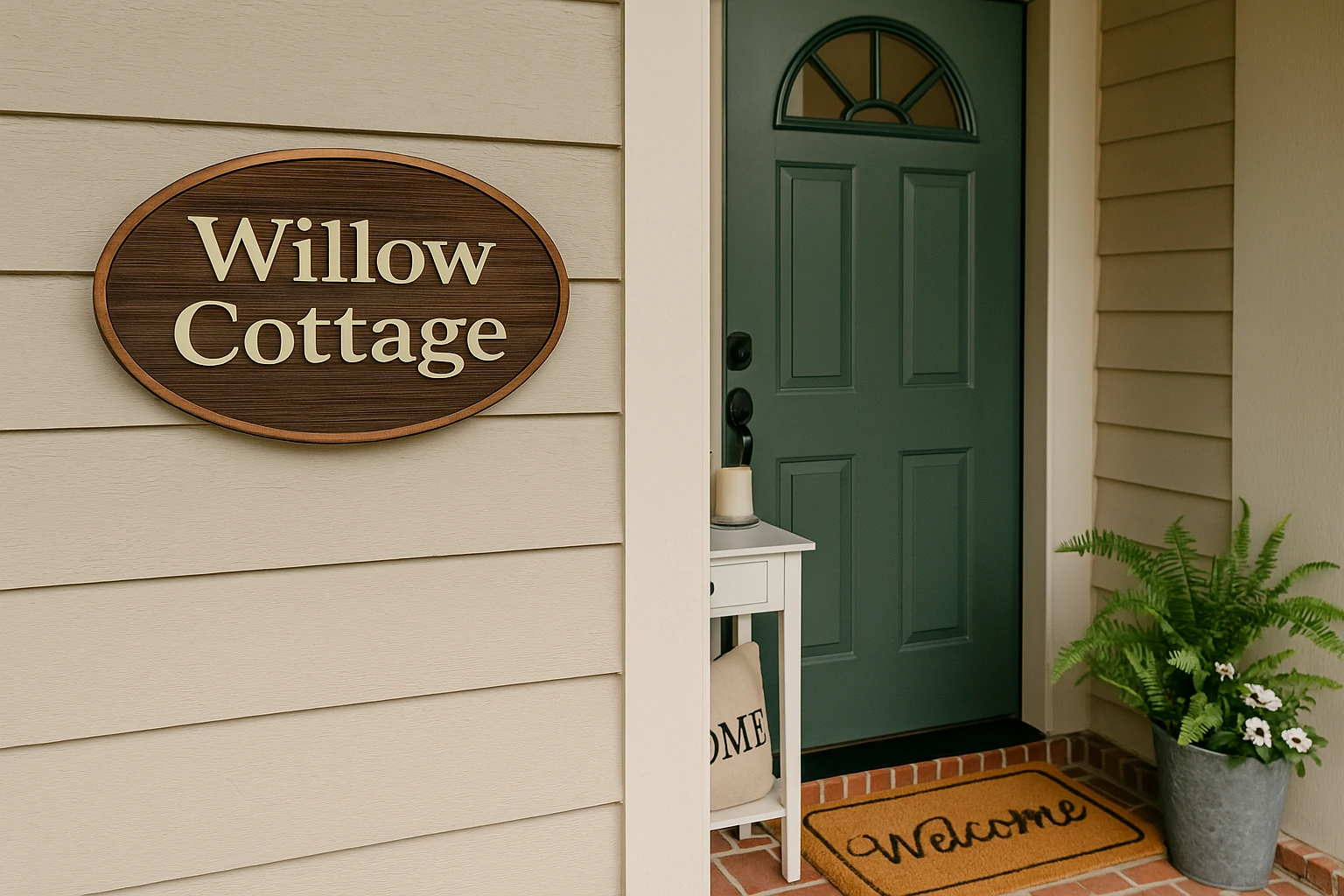
Once you pick the name, let it show. Place it near the front door or entryway. Carve it on wood. Print it on a stone. Add it to the gate or porch.
Inside, use the name in your décor. Put it on pillows or picture frames. Add it to a mat or candle. Let it become part of your space.
If the home is a rental, include the name in every profile. Use it on Airbnb, signs, notes, and welcome letters. It makes guests feel part of something warm and known.
The more you use the name, the more it feels real. It grows with the house. It becomes a part of how people remember your home.
House Naming Ideas by Theme
Nature-Inspired Names
Nature gives endless ideas. “Oak Haven,” “Pine Rest,” “Silver Creek,” or “Blue Ridge” add freshness. These names suit homes near forests, hills, or lakes.
Modern and Stylish Names
Modern homes fit crisp words. “Urban Edge,” “Glassview,” or “Zen Loft” reflect city energy and clean design. They sound sharp yet calm.
Vintage and Classic Names
Traditional names never lose charm. “Rosewood,” “Cedar Hall,” or “The Gables” bring elegance. They remind people of timeless grace.
Personal and Meaningful Names
Use your story. “Emma’s Place,” “Reunion House,” or “Morning Light” can honor people or moments. Personal names create emotional depth.
Mistakes to Avoid
Some names sound cold or strange. Others feel forced or too long. Pick something that matches the home’s size, shape, and mood.
A small apartment should not sound like a royal castle. A beach house should not have a mountain name. Stay true to the space.
Skip names that are hard to say. Avoid slang or jokes that may feel odd later. What sounds funny now may not feel right years from now.
Make sure no other home near you has the same name. Search online to avoid confusion. Add a small change if needed. Use your own touch to make it unique.
Pick a name that will last. Trends fade. A name with meaning stays strong.
Some homeowners pick names that reflect the safety and feeling of the neighborhood. If you live in a place like House Springs, you may want to learn more about the local environment before choosing a name. Is House Springs, MO Safe?
offers helpful insight.
How to Protect and Keep Your House Name Official
Check Local Regulations
Some cities or townships allow homes to register official names. Check with your postal or council office. They can confirm if you can link the name to your mailing address.
Display Rules and Property Signs
If you plan to put up a large sign, check neighborhood or homeowners’ rules. Some areas have limits on outdoor décor. A small wooden sign often works best without any issue.
Digital Identity
If you manage a rental or vacation property, secure the same name online. Claim it on your website, email, or Airbnb profile. Consistent naming helps with brand trust and recognition.
Real Ideas to Spark You
Every home tells a story. The name should match that feeling. Think of names like “The Hideaway,” “Rosewood House,” “Whisper Cabin,” or “Sunny Ridge.” Use these as sparks, not rules.
A home near trees may suit a name like “Pine Hollow.” A city loft might work with “Bricklight.” A beach cottage may feel right with “Salt View.” Let the place guide your thoughts.
You do not need to copy anyone. Just listen to your heart. Your home already holds the answer.
Naming a Rental or Guest Property
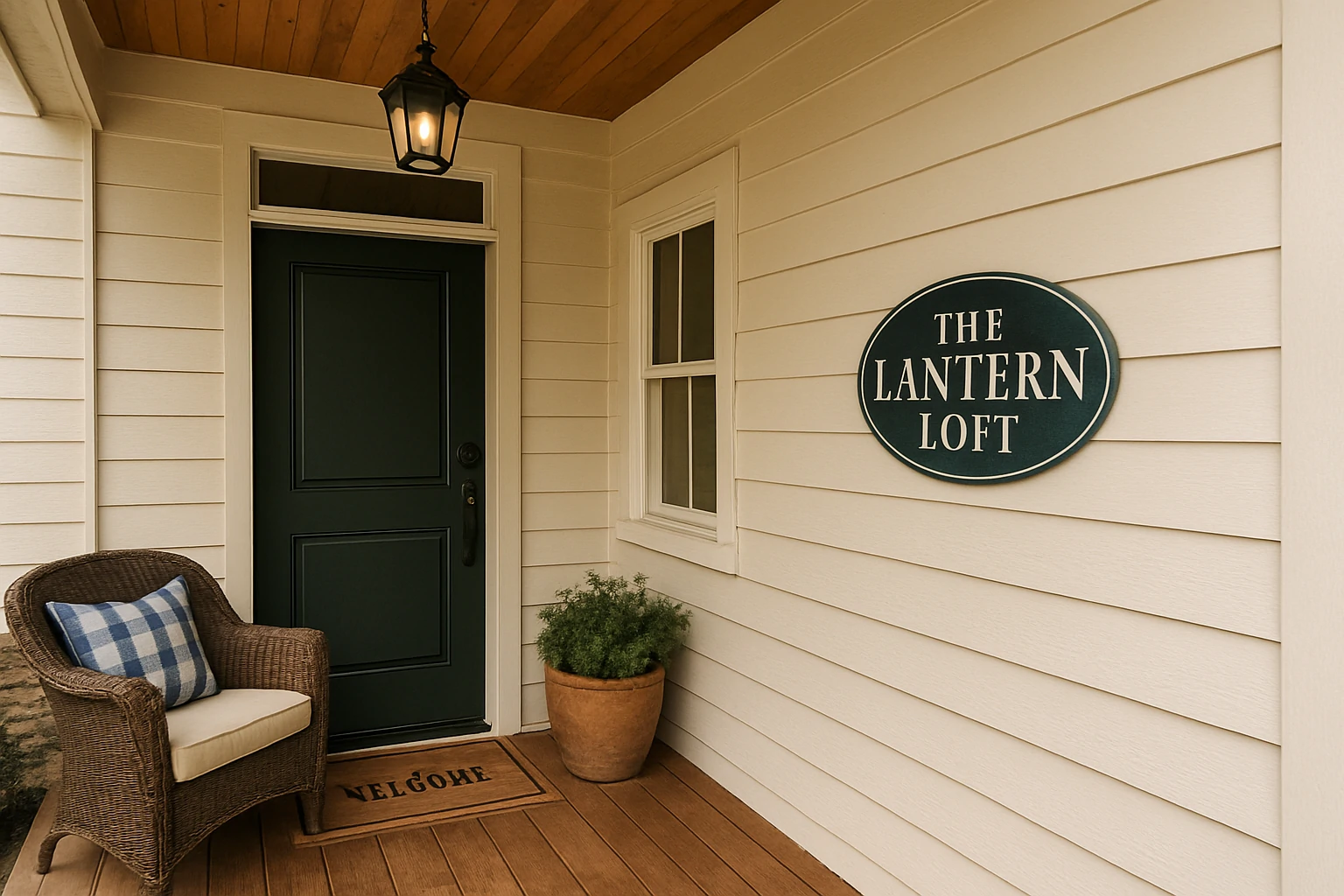
A rental needs a name that sticks. Travelers see many homes. A name helps yours stand out.
Use warm, easy words. “The Lantern Loft” or “The Sand House” feels simple and kind. Make sure the name matches the look and feel of the space.
Use the name in all online posts. Place it in your welcome book, on Wi-Fi sheets, and in messages. The more they see it, the more they trust it.
A name builds your rental’s brand. It adds depth, care, and comfort.
Why the Name Will Last
A good name becomes part of the home. Children grow up with it. Guests remember it. New owners may keep it.
It carries your family’s spirit. It reflects love, joy, and peace. Even as the years pass, the name still feels full.
The sound of it, the story behind it, and the way it fits the houseit all stays. That is what gives a name its power.
The Personal Joy of House Naming
Naming your house can bring joy to everyone who lives there. It gives a shared story and a bond. Children love being part of the decision. Guests feel warmth when they hear it.
It also gives you pride. Every time you say the name, you feel ownership and connection. It becomes a part of your identity. The name turns a physical structure into a living memory that grows with you.
Naming a home is an act of love. It makes a place yours in every way possible.
Conclusion
A house name is more than a word. It adds soul to a space it helps you connect with where you live and It shows the heart inside the walls.
Think about the life inside your home. Feel what it means to you. Let those feelings lead you to the right name.
Speak your ideas out loud. Imagine them on your door or sign. Share them with others. When the right one comes, you will know.
Your home deserves a name that lives as long as the stories inside it. Choose one that feels real. Let it speak with pride.
If you plan to sell or rent your home in the future, it’s smart to understand what documents support the identity of the property. Learn more in our guide: Home Information Pack Explained: Everything You Should Know.

